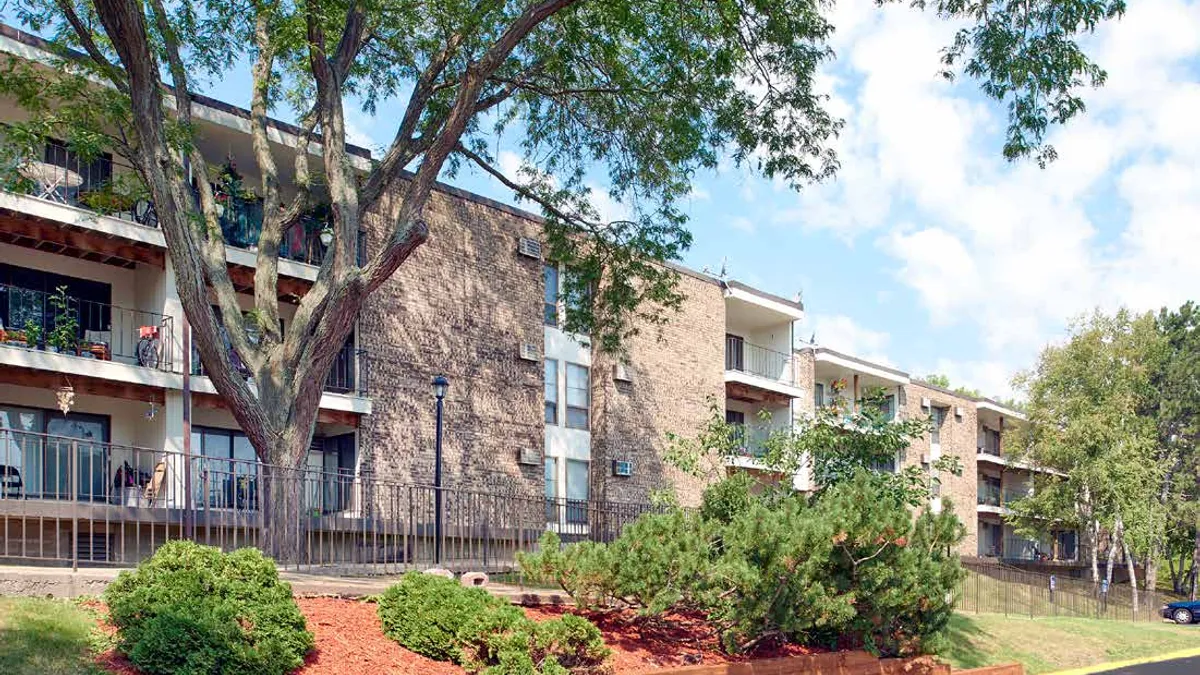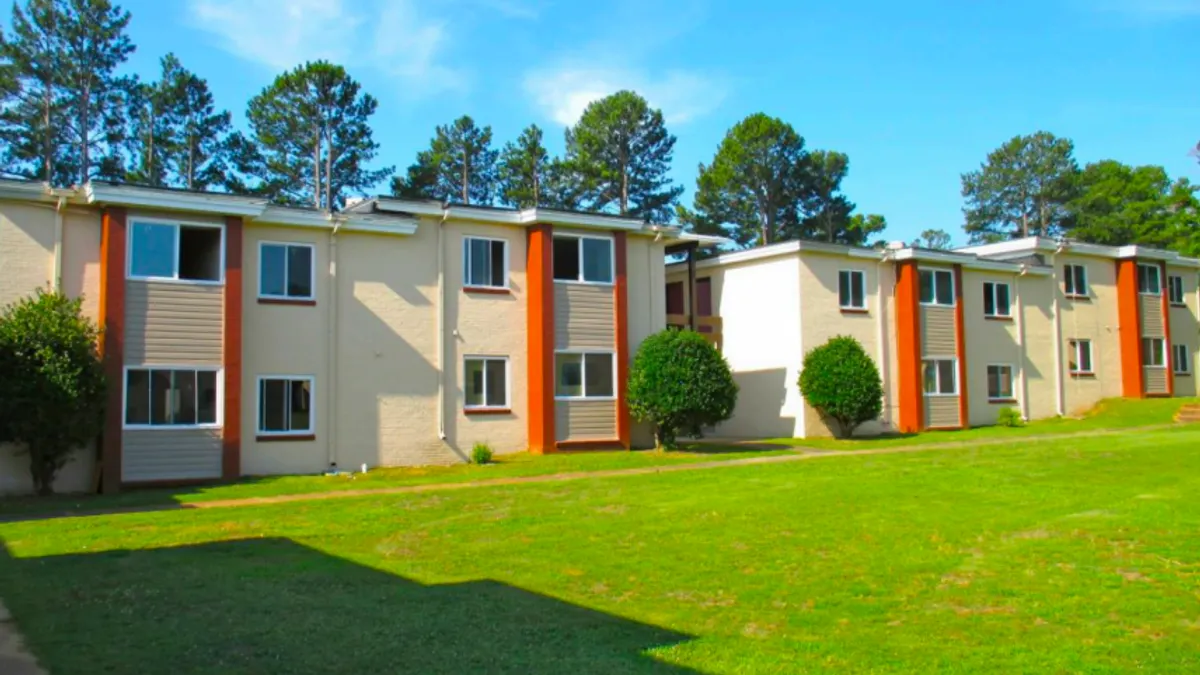In April, public student REITs essentially went extinct when private equity colossus Blackstone took American Campus Communities private in a $13 billion deal.
Blackstone’s Core+ perpetual capital vehicles – including Blackstone Real Estate Income Trust and Blackstone Property Partners – acquired ACC, the largest student housing owner, manager and developer in the U.S., in an all-cash transaction valued at approximately $12.8 billion, including the assumption of debt.
With ACC, Blackstone adds the No. 33 largest owner on the National Multifamily Housing Council’s list and its 35,441 units to its growing housing empire. ACC also gets capital “to invest in its existing assets and create much-needed new housing in university markets,” according to Jacob Werner, co-head of America's acquisitions for Blackstone Real Estate, in a company statement announcing the sale.
But the ramifications of this particular deal go beyond ACC and Blackstone. It shows the enormous buying power that private equity welds at this point in the real estate cycle while also highlighting the limitations of public REITs.
Blackstone’s empire grows
Blackstone's acquisition of ACC, which declined to comment for this story, continues its apartment buying spree. In 2021, the company’s non-traded REIT, BREIT, ranked as the No. 1 buyer of apartments with more than $10 billion in purchases, according to information shared with Multifamily Dive from MSCI Real Assets (formerly Real Capital Analytics) a New York-based firm that provides tools and services for the global investment community. But it didn’t stop there. Blackstone’s non-REIT buying activity came in second.
BREIT’s activity surpassed non-traded REITs, including Starwood’s SREIT vehicle, which came in No 3. In all, non-traded REITs bought a record $213.9 billion of U.S. apartment buildings last year, according to a new MSCI report.
With the amount these REITs raise, it’s necessary for them to invest as efficiently as possible.
“If I’m raising billions of dollars every month, it’s hard to go and buy buildings one at a time,” said Jim Costello, head of real estate economics at MSCI. “I’ve got too much coming in the door. I can’t deploy it effectively by buying a building in Cleveland and an industrial building in Philadelphia, for instance. The pace of that might not be enough to put the capital to work.”
If the first four months of the year are any indication, Blackstone will again be a top buyer in 2022. In addition to buying ACC, BREIT is slated to purchase Preferred Apartment Communities for $5.8 billion and Resource REIT for $3.7 billion.
But ACC, at $13 billion, is the largest prize so far.
“Student housing is a compelling sector due to growing enrollment at the top universities in the U.S. as well as a shortage of quality housing supply,” said a spokesperson from Blackstone in a statement supplied to Multifamily Dive. “This has led to strong and resilient performance throughout cycles.”
As Blackstone has grown, Costello said it has spawned imitators. “They’ve raised a bunch of money,” Costello said. “There are others who want to copy their success and try these multi-billion-dollar-a-month capital raises. There are a lot of folks trying to be active in that space now. They see the success."
Private life
With ACC’s exit, there are no longer any publicly traded student housing REITs. At one time, there were four. They were:
ACC, Memphis-based EdR (acquired by Greystar for $4.6 billion in 2018), Charlotte, North Carolina-based Campus Crest (acquired by Harrison Street for $1.9 billion in 2016) and Newton Square, Pennsylvania GMH Communities Trust (acquired by ACC for $1.4 billion in 2008).
“It [student housing] is a great industry and you certainly see a lot of capital flows to the private sector,” said Alexander Goldfarb, managing director, senior research analyst of REITs at Piper Sandler & Co. “Unfortunately for public companies, they haven’t had the best track record. Three of the four companies had issues and never really made it on the public market.”
As its three peers departed the public markets, ACC was the lone survivor, but this didn’t lead to increased investor emphasis. In fact, Goldfarb says it’s harder for smaller REITs that are the only public companies in their sector to get attention from investors.
“It's easy to not own it and own other stocks that give you similar performance,” Goldfarb said. “It just makes it harder for one-off REITs that are smaller in size, relative to the index, to get the attention they deserve. They just have to perform better.”
Haendel St. Juste, managing director of REITs for investment bank Mizuho Securities, who previously covered ACC, agrees. “With just one public company, it was almost an orphan sector,” he said. “It became a stock that kind of faded into the background over the last few years.”
To understand ACC and the other student REITs, investors also needed to gain comfort with the student housing model, where leasing is conducted in a more limited timeframe than conventional apartments and move-ins occur in a matter of days. “I think the operations of this business are a bit trickier,” St. Juste said.
Fuel for growth
Acquisitions also became tricky. ACC’s stock was trading at a discount to private market values for years, which hindered its buying power. REITs typically carry leverage below their private sector counterparts, limiting their buying power in times, like now, when debt capital is plentiful.
“It's a competitive disadvantage when their private peers have a better cost of capital than ACC does,” Goldfarb said. “The point of being public is to broaden your capital options. Unfortunately, this was having the opposite effect.”
Now, unencumbered by the public markets and backed by Blackstone’s massive war chest, ACC is in a prime position to expand its market-leading position.
“We believe that our long-term capital makes us a particularly good fit for American Campus Communities as it will enable ACC to invest in its existing assets and create much-needed new housing in university markets,” said a spokesperson from Blackstone in the statement supplied to Multifamily Dive. “We’re excited to work with the ACC team to deliver communities where students love living.”
Click here to sign up to receive multifamily and apartment news like this article in your inbox every weekday.
















